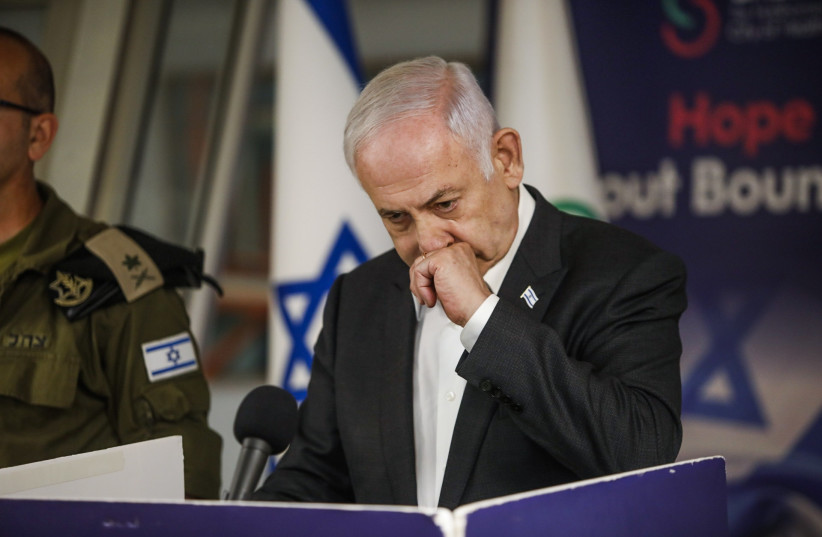Sixty-two percent of Jewish Israelis support an attack on Hezbollah in Lebanon with “full force,” a Jewish People Policy Institute survey revealed, with 36% of these respondents supporting an immediate attack and 26% an attack only after the operation in Gaza.
Last week, Hezbollah launched its largest barrage of rockets and drones towards Israel since October, prompting senior Biden administration adviser Amos Hochstein to visit Israel on Monday to advance efforts to avoid further escalation along the border.
Some 57% of right-wing Israelis support an immediate offensive against Hezbollah. This perspective contrasts with the more balanced views of other political groups, who prefer a strategic approach following the conclusion of the Gaza campaign.
Deep concerns over social cohesion
The survey indicated that over 80% of Jewish Israelis are “concerned” or “very concerned” about the state of social cohesion. This concern was compounded by the identification of several key tensions: a significant portion of the public specified “Right-Left” tension as a major factor eroding social unity, while Arab Israelis attach greater importance to “Jewish-Arab” tension, and the secular public emphasizes “religious-secular” tension.

Key among the survey’s findings is the overall Israeli support for the peace plan set forth by US President Joe Biden – with 28% viewing the plan as positive, and a further 32% believing the plan, while problematic, to be the best possible roadmap. The vast majority of Israeli Arabs (70%) believed the plan to be good.
Preferred governance of Gaza post-war
The preferred option for post-war administration in Gaza among Jewish Israelis is a civil administration by Palestinian elements and Arab states, with Israel responsible for security. Only 20% of Jewish Israelis favor full Israeli control (both civil and security), with this preference more pronounced among the political right (46%) and especially among Religious Zionist Party voters (57%).
Confidence in an Israeli victory remains low, with no significant change from May to June. The survey shows that 62% of right-wing Jewish Israelis report high confidence in a victory, compared to 30% of centrists and 16% of left-wing respondents. This indicates a strong correlation between political orientation and confidence levels.
Eroding trust in leadership
The survey reflected a continued decline in trust towards the government and the IDF command echelon. Only 18% of Arab Israelis and 25% of Jewish Israelis expressed fairly or very high trust in the government. Among the political right, trust was slightly higher at 44%.
Trust in Prime Minister Benjamin Netanyahu remained low, with only 43% of Likud voters having high trust, and 30% reporting “fairly high” trust.
Trust among Shas voters is similar, with slightly lower trust among United Torah Judaism voters. Among Religious Zionist Party voters, more than half express fairly or very high trust, though 45% report fairly low or low trust in Netanyahu. Trust in IDF commanders is low among the right wing, with 60% reporting fairly low or low trust.
Rising tensions in the north
With high tensions on the northern border, 57% of right-wing Israelis supported an immediate offensive against Hezbollah. This perspective contrasted with the more balanced views of other political groups, who preferred a strategic approach following the conclusion of the Gaza campaign.
Notably, the survey also found a significant rise in the sense of a shared fate between Israeli and Diaspora Jews. Compared with data from previous surveys, the percentage of Israeli Jews who “strongly agree” that all Jews have a “common future” has surged. If we add those who “somewhat agree” with that sentiment, we find that eight in ten Israeli Jews see a “common future” for Israeli and Diaspora Jews.
JPPI president Prof. Yedidia Stern noted, “The survey shows languishingly low trust in Israel’s leadership, and a preference for bringing an end to the conflict sooner rather than later. This suggests that Israelis feel prolonging the conflict will not likely yield better results, and a deal that sees the hostages returned home remains the priority for most. With regard to ‘the day after’ in Gaza, Israeli support for regional involvement in managing Gaza reflects a much more positive outlook for cooperation with Israel’s moderate Arab neighbors – even while understanding that a full-blown conflict with Hezbollah remains only a matter of time.”
Methodology
Data collection for the Jewish People Policy Institute’s June Israeli Society Index was conducted using the index website’s panel (601 respondents from the Jewish sector, via an online survey) and the Afkar company (202 respondents from the Arab sector, approximately half online and half by phone). The data was analyzed and weighted according to political affiliation and religiosity to represent the opinions of the adult population in Israel. JPPI’s Israeli Society Index was edited by Shmuel Rosner and Noah Slepkov; statistical consultant was Prof. David Steinberg.
